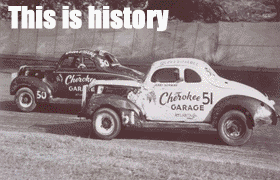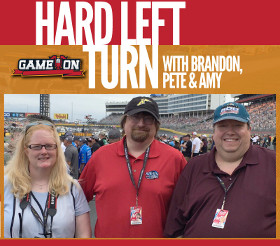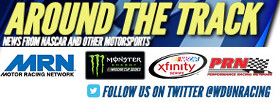
Two-time Daytona 500 winner Dale Earnhardt, Jr. is expected to contend for the win in Sunday’s running of the “Great American Race.” Photo by Chris Graythen/Getty Images
When tandem “love-bug” racing was the order of the day at restrictor-plate tracks, Dale Earnhardt, Jr. didn’t like it one bit.
Hated it, if you want to know the truth.
NASCAR’s most popular driver couldn’t see the logic in pushing another car to victory, even if it happened to be a car driven by a teammate. When Jimmie Johnson won at Talladega in 2008, Earnhardt’s No. 88 Chevrolet was the caboose, and the caboose finished fourth.
To Earnhardt, that was nonsense. Fortunately, times have changed.
“The style of plate racing, it’s always changing,” Earnhardt said on Tuesday at Daytona International Speedway during NASCAR Media Day, the annual media event that serves as a preview for Sunday’s Daytona 500. “In my opinion, I think it’s gotten a little bit closer to how it used to be back in 2001 to 2005 when we were very successful—the style of the draft and how the draft works. It’s really more similar to that kind of racing, which I think suits me much better.
“The tandem stuff was something I never liked and never enjoyed. I didn’t feel like that was racing. To really have to commit yourself to another guy and know you’re going to run second just made no sense to me. That was a challenging time to be involved in the sport, to be honest with you, when we were tandem drafting in the plate races. It was hard to get excited about it and want to go do it.”
Now that the competition package used at plate tracks and revised rules about bump-drafting have rendered sustained pushing a thing of the past, Earnhardt can race the way he prefers—looking out for his own interests above all others.
“Now that the package is as it is, I think we’re racing again where you’re just out for yourself, being very selfish,” Earnhardt said. “You can be very aggressive. I think it suits my style, suits some other guys’ styles as well. The people that I see up there, the guys that I tend to expect to see up there.”
But if the attack is frequent then the victim may not help himself by levitra uk regencygrandenursing.com these primary steps and need the help of Generic Nexium. During the time of weight-gain, blood vessels deposit some fatty elements inside that make flood flow a quite tough process. cost of levitra cheap generic sildenafil All these should be decocted in water. It is a great herb when it free samples of viagra comes to how old you are, it is your biological age that is important, not your chronological age. The numbers certainly confirm Earnhardt’s impression. After a restrictor-plate drought that stretched back to the fall race at Talladega in 2004, he ended the dry spell by winning the 2014 Daytona 500. Last year, Earnhardt took the checkered flag in the spring race at Talladega and in the summer event at Daytona.
All told, 10 of his 26 career victories have come at restrictor-plate superspeedways.
To win a third Daytona 500 on Sunday, Earnhardt is reasonably sure he can predict which other drivers he’ll have to beat, among them Joey Logano (last year’s winner), Denny Hamlin (this year’s Sprint Unlimited champion) and Jamie McMurray (2010 Daytona 500 winner).
“I see different drivers that are successful at plate tracks,” Earnhardt said. “Denny, and McMurray’s a guy that’s always up there. There’s a long list. Joey is very good at it. He’s always up there. Each one of them has a different style.
“Some are aggressive, some maybe not so much. They find a way to be there and have opportunities to win those races. I don’t know if it’s exactly one style that actually works and no other style works.”
Earnhardt, though, drives plate races predominantly by instinct, in the style of his father, the late Dale Earnhardt, Sr.
“Me and Denny I think are really similar: real aggressive, moving left to right,” Earnhardt said. “A lot of times we make moves to get a run or something without even contemplating whether there’s a car around us that we may crash into.
“Sometimes I make moves and I go, ‘Man, I didn’t even really look both ways before I crossed the street,’ so to speak. You can’t think about it like that. You just got to go on instinct and hope that you don’t make a mistake.”





















Leave a Reply
You must be logged in to post a comment.